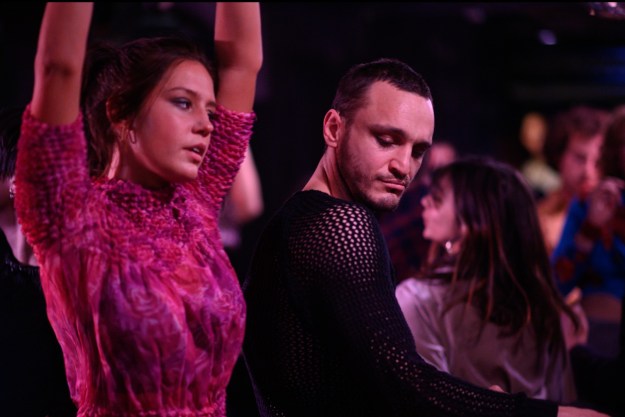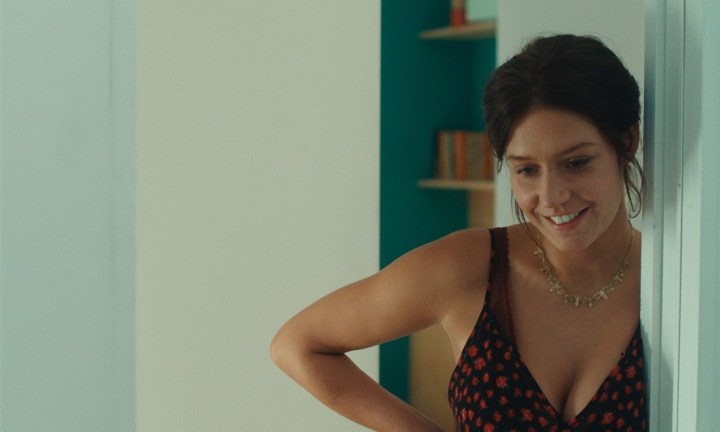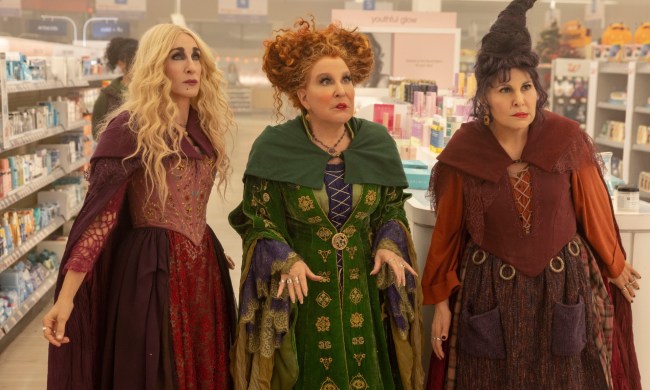
“This slender, unsparing new drama from Ira Sachs revolves around a filmmaker, and he's a cad for the ages.”
- Franz Rogowski's fearless performance
- The sexy sex scenes
- The economical 92-minute runtime
- Not the most complex drama
- Ira Sachs isn't a master of style
- Rogowski only dances a couple times
Any time a director makes a movie about a director, they run the risk of autobiographical readings — of viewers confusing the fictional artist on screen with the real one behind the camera. In that respect, Passages is rather courageous. This slender, unsparing new drama from Ira Sachs (Little Men, Love is Strange) does indeed revolve around a filmmaker, and he’s a cad for the ages: a breathtakingly selfish lothario who blows up his love life on a whim. Were the man real, calls for his cancellation would be deafening. What bravery, what fearless restraint it must have taken to not end the movie with a disclaimer insisting that any similarities to directors living or dead are purely superficial.
Sachs, a Tennessean branching out across the pond, might be quick to note that his main character here is a German living and making movies in Paris. We first see Tomas (Franz Rogowski) berating an actor for not walking down the stairs in a convincing way — a brief snapshot of what a demanding perfectionist he can be. On set, Tomas knows exactly what he wants. Off set, not so much, though he’s still more than willing to treat the people in his life like the performers in his movies, bent to the shape of his desire.
Tomas is married to a soft-spoken, English graphic artist named Martin (Ben Whishaw) with whom he’s comfortable but clearly a little bored. Early into the film, the director is drawn, on the dance floor of a nightclub, to the younger, flirtier French schoolteacher Agathe (Adèle Exarchopoulos). “I had sex with a woman,” Tomas casually confesses to Martin the next morning, after he goes home with her. “Can I tell you about it?” What looks at first like a mere fling, the pursuit of an exciting new experience, quickly develops into something more serious; before we know it, the artist has left his marriage for a fresh start with Agathe — a surprise, given the implication that he’s only been with men before.

Most of Passages is just these three characters navigating a situation only two of them treat with any emotional sensitivity. For Sachs, it marks a move into a distinctly French school of insular, erotic gabfest. (His last film, Frankie, was European in a more digressively Mediterranean way). The love scenes are frank and passionate — the stars throw themselves hungrily into them — but not all that explicit. The NC-17 rating is proof that the MPA still sees queer sex, however carefully blocked, as scandalous.
Sachs leans heavily on his actors, all terrific. Whishaw, fixing that steady, green-eyed stare to typically sensitive ends, fights a tiny internal war for Martin’s dignity, subtly telegraphing his drift towards or away from forgiveness. And Exarchopoulos maintains the carnal intelligence and ordinary-person naturalism that should have taken her supernova after Blue is the Warmest Color a decade ago. Both make meals out of roles that are fundamentally reactive, playing characters caught in the orbit of an indecisive and magnetically incorrigible lover. There’s a seesaw quality to Passages, which keeps tilting Tomas in and out of his relationships. Is he bisexual, bi-curious, or just hopelessly capricious?
This isn’t the director’s first film about a tumultuous, lopsided relationship. His Keep the Lights On, which was quasi-autobiographical, tracked the ups and downs of a romance in the shadow of addiction. Passages is tighter and more selectively economical than that exhaustive (and appropriately exhausting) string of anecdotes. Sachs has cited the French director Maurice Pialat as an influence, and there’s certainly a touch of his immortal breakup movie We Won’t Grow Old Together, also about the romantic foibles of a film director, in the way Passages keeps speeding ahead to some new status quo, sometimes eliding the moment where one relationship ends and another begins.

The whole thing is built around Rogowski, the lean, broodingly handsome German actor who played a haunted refugee in Christian Petzold’s Transit and the hollow scion son of Michael Haneke’s Happy End. Here, the star lends his character an almost childlike self-centeredness, the kind of disregard for others’ feelings you can usually expect in someone too young to know better; every thoughtless decision comes with a plea for understanding. Not for nothing does the movie last depict Tomas walking through a gymnasium full of kids and then climbing onto a bicycle too small for him — a bit of physical almost-comedy that puts Rogowski’s dancer physicality to good use.
If there are laughs here, they’re the kind reserved for behavior so brazenly unkind that laughter seems like the only proper reaction. If the romance is ever sweet, it’s the sweetness of carrion. Passages isn’t really a love triangle, because Martin and Agathe aren’t competing with each other; they’re competing against the fickle desires of the same immature lover. The movie may not be intended as any form of self-portrait, but Sachs must know the ways that the privileged position of a director can become a license to see the whole world as a set, and its people as actors waiting around for you to call “Action!”
Passages opens in select theaters Friday, August 4. For more of A.A. Dowd’s writing, please visit his Authory page.



